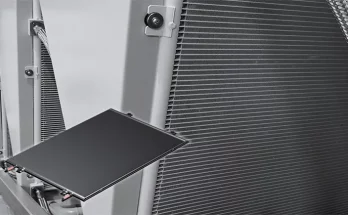 When soundproofing a house, it is important to take certain considerations into account.
When soundproofing a house, it is important to take certain considerations into account.
Firstly, the noise begins slowly and then increases as high-powered motorcycles pass your front door in their own version of the Isle of Man TT – only this time the noise is coming from the end of your road.
It’s no surprise that after air pollution, traffic noise is one of the greatest environmental issues facing Europe. Statistics indicate that traffic noise contributes to over 60,000 premature deaths per year, causing high blood pressure, cardiac problems and an increased risk of diabetes or stroke.
So, How Can You Go About Soundproofing Your House?
The first and most significant point to consider is that soundproofing is only as good as its weakest point. You can opt to build thicker walls or stuff the walls with so much insulation no noise could penetrate, or you could invest in the most advanced soundproofed aluminium windows; however, in isolation, they will not deliver the results you need for ultimate sound insulation. For the most effective insulation, you need them to work together.
How Does Sound Insulation Work?
Sound insulation of a house operates in three ways, or a combination of all three. The first is to stop the noise by adding mass to the property for reflection of sound. In this case, you will create a dense acoustically dead surface that does not vibrate or vibrates less than other material. This technique is known as dampening.
The next method is via absorption. This involves absorbing the sound using material that prevents it passing to the other side, such as wall insulation.
The third method is by creating a barrier between the first and second structure. This stops the sound from passing between them using a vibration; thus, forming a gap in which the vibrations cannot move. This method is known as decoupling.
How Do Soundproof Windows and Acoustic Glass Operate?
Acoustic glass reduces the level of noise pollution using deflection and dissipation of sound waves. This occurs using a combination of glass thickness, the acoustic interlayer and the space between the glasses to disrupt the sound wave.
The rule of thumb is that denser materials are more effective at reducing sound penetration, so the thicker the glass, the better it will be as sound insulation. However, this needs to be set using different thickness levels. This is why merely adding a third pane to a triple-glazed window unit will have limited impact in sound insulation. Not all window and door salespeople understand this concept; therefore, it is not always communicated to the homeowner when purchasing glazed windows.
Sound passes through objects using a linear direction. Utilising different combinations of glass thickness means that the glazed window units will be more efficient in dissipating and disrupting sound.
Acoustic glazing maximises the efficiency of sound insulation by combining the various glass thicknesses; however, there is also the introduction of special PVB interlayer applied to the glass during manufacture. This offers another layer of sound insulation to the glass thickness, absorption and dampening of sound stopping it vibrating from one side of the glass to the other.
If there are more layers with thicker density, the sound waves will be disrupted based on the basic principle of sound insulation window design.
The Soundproofing Secondary Glazing
If you are not able to replace the current windows with sound insulation because you own a period property or reside in a conservation area, it is still possible to improve the energy efficient and sound insulation of the house through secondary glazing.
Once again, the basic principle of sound insulation applies. Installation of energy efficient secondary glazing will not remove any noise by default; however, using the new energy efficient replacement double or triple-glazed windows means there is a more effective sealing. More effective sealing contributes to reduction in sound penetration, despite the reduction being small.
As mentioned above, the specialist double or triple-glazing can assist in soundproofing and reduction of noise; however, secondary glazing can cut the level of noise penetration by approximately 70 per cent. It does this through dampening, absorption and decoupling. As it is secondary glazing, it is able to separate to the external-facing window.





